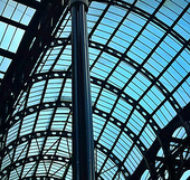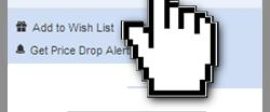Don’t Buy This Jacket
Blog / Produced by The High Calling
Apparently, when I walk into certain retail stores and see ten feet of open space, I’m psychologically comforted. I move instinctively to the right, and look at small items like lower-priced key fobs that have the company’s logo and allow me to “buy the brand essence.” Then, I move toward the rear of the store where the bigger ticket items and salespeople wait. In a clothing store, I need a manikin to show me how to dress, because I am insecure about my body image and also about matching tops with bottoms.
This is how I, John Q. Consumer, act, according to retail merchandising professionals.
Stores pave the way for me to consume effortlessly. It’s become so easy, in fact, that a trade phrase was coined to describe the hiccup in our shopping experience that causes us to hesitate about taking out the credit card somewhere between the key-chains and the cash register. It’s called “excessive disruption.” I have become enamored of the phrase, since it calls attention so eloquently to how little we think of anything else but our shopping conquest. It’s as if we’re performing open-heart surgery, and even a scrub nurse’s cough could jar our scalpel-bearing hand.
Now, there are stores whose ability to avoid excessive disruption is so artful that they attract those, like myself, who simply want to browse. Think Apple, Barnes & Noble, Anthropologie, even Cracker Barrel, with its for-sale rocking chairs before/after the copious meal. There’s a God-honoring beauty about these stores and a high quality to the products. And that’s a good thing. It engenders customer loyalty and trust. In fact, Barnes & Noble avoids disruption so well that the store I was most familiar with—the five-story location near Lincoln Center—shut down last year. You could walk in there, grab a Starbucks from the top floor and essentially descend to the Architecture aisle and read the whole section before a staff member told you that it was closing time. You never really had to buy a book. (Starbucks, of course, made out like bandits. Coffee’s never free in New York.)
So it was all the more surprising to hear that some companies are actually being “disruptive” on purpose, and with philanthropic intent.
Disruptive Philanthropy
reCAPTCHA, the online security tool that requires you to type in two words before continuing on to read free content, is actually a way to archive previously lost editorial work from The New York Times and books that were scanned. One of the words you type comes from a lost work and is unreadable by Optical Content Recognition. You—the consumer—are participating in restoring content. This is done 200 million times a day, amounting to effectively 150,000 hours of daily restoration.
In another instance, on Black Friday 2011, Patagonia ran the controversial “Don’t Buy This Jacket” ad. While its marketing director admitted they sell clothing and needed to be profitable, “everyone needs to consume less.” The ad noted that the manufacturing process of just one of these jackets requires enough H2O to meet the daily water needs of 45 people.
The term for these acts by Patagonia and reCAPTCHA—that moment which interrupts the flow of an ordinary task such as reading online—is “disruptive philanthropy.”
I love it.
Now, I can view my kids as agents of disruptive philanthropy when I have just made them all pancakes and bacon and FINALLY sit down for mine, and one of them says, “Dad, can I have another glass of milk?” Of course you can.
The homeless person I encounter on the street or in the subway is disruptive, and while I may or may not give, she causes me to ponder my generosity. And my consumption.
Jesus, with his philos anthropos, stands as my ultimate example. He was the Disruptive Philanthropist to human history and caused it to literally pivot on itself, demonstrating the immense generosity of God. How many times we see his daily life “disrupted” by people asking for help, people just like us. These were the essence of his daily work, and I’m trying to make them mine as well.
When I remember that I’m made in his image, I have power to let my life be disrupted for what God calls me to next. Like giving the homeless person a meal. Like giving into that “disruptive” offering plate passed in worship.
Like pouring a glass of milk. Or maybe two.
Image by Maistora. Used with permission. Sourced via Flickr. Post by Howard Freeman, who has made a great deal of his living through generosity.









